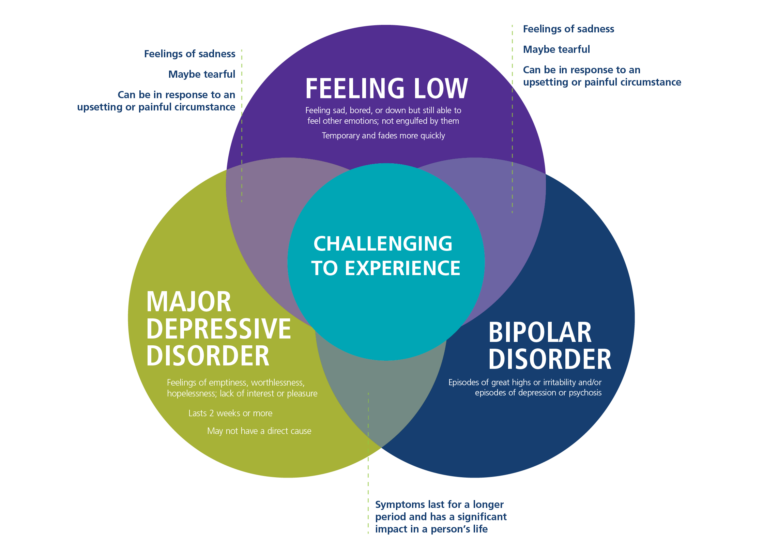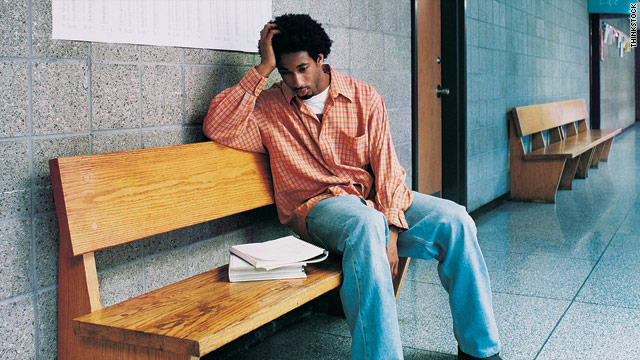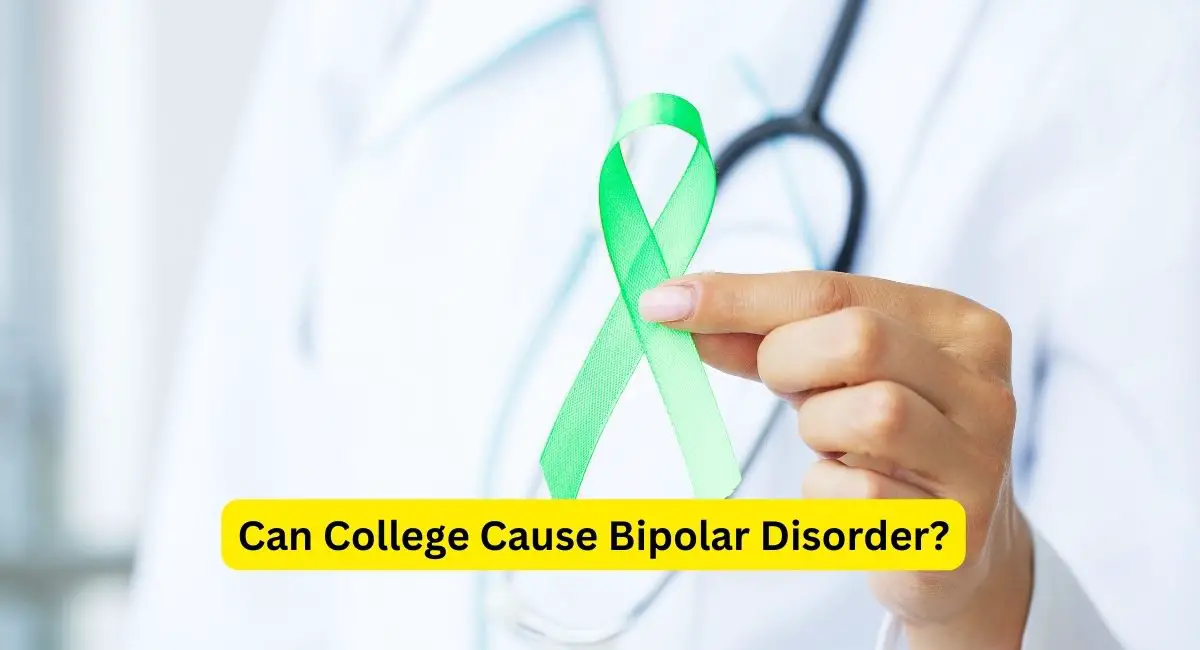College cannot cause bipolar disorder, as it is a complex condition with genetic, neurological, and environmental factors. Bipolar disorder typically emerges in late adolescence or early adulthood, coinciding with college age for many.
Understanding the relationship between college stressors and mental health is crucial, especially since college life often aligns with the age when symptoms of bipolar disorder first appear. Bipolar disorder, a mental condition characterized by extreme mood swings, requires a biological predisposition and is not triggered by education per se.
Nonetheless, the pressures of college—academic demands, sleep disruption, and social stress—can act as catalysts for the onset of bipolar symptoms in predisposed individuals. Addressing concerns about bipolar disorder and its links to college life is important for students, parents, and educators alike, in order to foster supportive environments that promote mental well-being. Early identification and proper management of stress can be vital for students vulnerable to mental health issues. It is essential to differentiate between the disorder’s root causes and environmental stressors that may exacerbate an existing condition.

Credit: www.health.harvard.edu
The Complexity Of Bipolar Disorder And College Stress
College life can be exciting and challenging. Lots of stress comes from tests, deadlines, and new environments. Young adults often feel pressure to succeed. This pressure can be tough on the mind. For some, it might lead to mood disorders like bipolar disorder.
Bipolar disorder shows up as extreme mood swings. These swings can be from very happy to very sad. People in college may not know they have it. They might think it’s just college stress.
Not everyone will get bipolar disorder at college. But high stress can trigger it in some people. Especially if they are already vulnerable.
Knowing stress triggers helps avoid bigger problems. Staying healthy and getting help is key.
Bipolar Disorder Defined
Bipolar Disorder is a mental health condition. It causes extreme mood swings. These include emotional highs, called mania or hypomania, and lows, known as depression. To diagnose bipolar disorder, a doctor looks for specific symptoms. A person must have experienced at least one episode of mania or hypomania. Bipolar disorder affects both men and women. It often starts in the late teens or early adult years.
Bipolar conditions come in different forms. This includes Bipolar I, Bipolar II, and Cyclothymic Disorder. Each type has unique patterns of mood swings. The effects on a person’s life can vary widely. The right diagnosis is key. It helps doctors to provide the best treatment. Early recognition of bipolar disorder can lead to more effective management of the condition.
College Life: A Risk Factor For Bipolar Disorder?
Transitioning to college can be tough. New realties emerge, often sparking stress and anxiety. The shift to a college environment demands adaptation. This adaptation period can strain mental health. Unfamiliar stressors might trigger dormant issues.
Sleep patterns can change due to intense study schedules. Late-night social activities disrupt rest. Irregular sleep contributes to mood swings. Such swings may signal emerging bipolar tendencies. Substance use is another concern. College students sometimes turn to alcohol or drugs. These substances can badly affect mood stability.

Credit: www.activeminds.org
Evidence And Research
Recent studies have found a link between college pressures and mental health problems. Researchers see that heavy workload, sleep loss, and social stress may increase the risk for issues. This is not only about grades but also about money and future jobs.
Some scientists say the stress can trigger bipolar disorder in some students. Others argue these findings only show a relationship, not a direct cause. They stress that college does not actually “cause” bipolar disorder. Mental health is complex, with many factors at play.
Managing Mental Health In A College Setting
College life can be overwhelming, with its unique challenges and stressors. Students often juggle academics, social life, and part-time jobs. This mix can strain mental health. Establishing a sustainable routine is critical. Regular sleep, healthy eating, and exercise are vital for stability.
Many colleges provide mental health services such as counseling. Students may find support groups and wellness programs helpful. It’s essential to use these campus resources. Creating a personal support system with friends and family also contributes to emotional resilience.
| Strategies | Examples |
|---|---|
| Time Management | Use planners, set priorities |
| Stress Relief | Meditation, hobbies, breaks |
| Seek Help | Counselling, advising services |

Credit: www.cnn.com
Preventive Measures And Early Intervention
Education about bipolar disorder is vital on college campuses. Students need to recognize symptoms early. This can lead to timely interventions. Workshops and seminars can increase awareness. Mental health should be part of campus health programs.
Colleges should have effective screening methods. This ensures quick help for students. Teachers and staff must learn how to refer students for support. A list of resources should be easy to find. Universities need to pair with health providers for this.
Frequently Asked Questions For Can College Cause Bipolar Disorder
What Causes Bipolar Disorder In College Students?
Bipolar disorder in college students is often triggered by a combination of genetic factors, psychological stress, and disruption in sleep patterns. Lifestyle changes and substance abuse can also play roles.
What Triggers Bipolar Disorder?
Bipolar disorder can be triggered by a combination of genetic traits, stress, brain structure changes, and environmental factors. Hormonal imbalances and certain medications may also play a role.
What Is The First Red Flag Of Bipolar Disorder?
The first red flag of bipolar disorder often is a drastic mood change. Mood swings from intense highs (mania) to severe lows (depression) can indicate this mental health condition. It’s crucial to consult a healthcare professional for an accurate diagnosis.
What Triggers Bipolar Hypersexuality?
Bipolar hypersexuality is often triggered by manic episodes. Elevated mood, increased energy, and decreased need for sleep can heighten sexual desires. Mental health professionals can provide effective management strategies for these symptoms.
Conclusion
Navigating college life can be challenging and stressful. While it doesn’t directly cause bipolar disorder, it can trigger symptoms in predisposed individuals. Awareness, support, and early intervention are crucial. Remember, seeking help is a sign of strength, not weakness. Take care of your mental health—it’s as important as your academic success.

